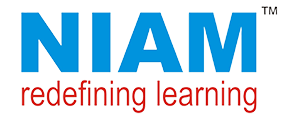Deendayal Upadhyaya – Grameen Kaushalya Yojana
DDU-GKY
Introduction
Deen Dayal Upadhyaya Grameen Kaushalya Yojana (DDU-GKY) is the skilling and placement initiative of the Ministry of Rural Development (MoRD), Government of India. DDU-GKY has its origins in the Aajeevika Skills programme and the ‘Special Projects’ component of the Swarnjayanti Gram Swarozgar Yojana (SGSY). The scheme focuses on catering to the occupational aspirations of rural youth and enhancing their skills for wage employment.
Implementation of DDU-GKY involves State Governments, Technical Support Agencies like the State Institute of Rural Development and Panchayati Raj (SIRD & PR), and Project Implementing Agencies (PIAs).
MoRD has notified the Guidelines and Standard Operating Procedures (SOP) to be followed while implementing the programme. It is mandatory for all project functionaries under DDU-GKY to be trained, assessed and certified in the Standard Operating Procedures.
Vision
To be a Centre of Excellence and a global leader for policy design and implementation in skilling and placement linked skill programs for rural youth of the developing countries.
Mission
To provide technical services such as monitoring, evaluation, training, content development, and research for the programs undertaken by Government at national level to enable rural poor youths including socially disadvantaged groups to secure a better future.
Objectives
1. ORMAS the nodal advisory institute for skilling and placement linked programs for rural youth in the country by 2020
2. Enhance the competencies of stakeholders and functionaries in the effective implementation of placement linked skills programs for the benefit of the rural youth in India.
3. Be a knowledge repository of skilling initiatives and programs in the developing world.
4. To be the leader in impact evaluation research of skilling programs
Implementation model
DDU-GKY follows a 3-tier implementation model. The DDU-GKY National Unit at MoRD is the agency responsible for national policy-making, funding, technical support and facilitation. The DDU-GKY State Skill Missions embedded in general within the State Rural Livelihood Missions (SRLMs) and NIRD are envisioned to play a central role in providing co-funding and implementation support to DDU-GKY in the State; and the Project Implementing Agencies (PIAs) who implement the programme through skill training and placement projects.
Challenges and opportunities
1. Work with other Ministries
2. Develop knowledge base which could be a reference source for the country
3. Develop frameworks and methods in assessing the impact of skill programs
4. Development into a process design and certifying agency for skilling systems in country
Centre for Skills and Jobs (DDU-GKY Centre) is on a threshold:
1. It can wipe out many a tear from the eyes of poor and deserving
2. It can have a forward looking outlook to make a global impact
Key Features
Project implementation agency (PIA)
1. Ensuring that trainees are able to access skilling and placement services free of cost.
2. Providing financial assistance for transport/ lodging and food during training.
3. Providing for post placement support for six months.
4. Providing for post-placement counseling, facilitation and tracking for one year.
5. Providing training in a number of trades that do not require formal education.
6. Encouraging exemplary performance in skill development by various stakeholders by instituting awards by State Government
7. Migration Support and Alumni Network to enable farm to factory transition.
8. Emphasis on regions like Jammu & Kashmir (HIMAYAT), 27 Left Wing Extremist Districts (ROSHINI) and North East States.
9. Inclusive Program Design which involves mandatory coverage of socially disadvantaged groups (SC/ST 50%, Minority 15%, Women 33%)
Policy advisory
1. Working with the Ministry of Rural Development to design and deliver a standards led delivery for the program
2. Working with MoRD and other key stakeholders to define the strategic imperatives of the program
3. Designing the Standard Operating Procedures to provide essential quality assurance framework for training infrastructure and service delivery
Working with MoRD and other key stakeholders to define the policy guidelines for `the program






